"Death Stranding 2" Doesn't Interest Me — For Now
Confessions of a lapsed Hideo Kojima fan.
Foreign Perspectives is a mix of free and paid content. Certain columns such as these are free for all subscribers, but other articles will be exclusive for paid subscribers. If you enjoy the work I do, please consider upgrading to a monthly or yearly subscription. Your support is greatly appreciated and ensures that this Substack can continue to deliver high quality pieces.
The last time I can remember being truly excited for a new video game was nearly ten years ago. It was Sept. 1, 2015 and my first week at the University of Pittsburgh had just started. A GameStop nearby which no longer exists soon became my go-to place to pick up the latest releases before heading home. On this occasion, I walked out with something I was anticipating for years — Metal Gear Solid V: The Phantom Pain.
As I didn’t yet own a PlayStation 4 at the time, it was the inferior PlayStation 3 port which ran at a pretty terrible frame rate and resolution. But it was $10 cheaper and it was still Metal Gear Solid V. As Hideo Kojima’s final (for real this time) mainline entry in his long-running stealth game franchise which started back in 1987, anticipation was unfathomably high.
Even now I continue to associate the first weeks of my college career with MGSV. As I was commuting back and forth between campus and home, my head was full of thoughts of what work I had to do for my courses and the next opportunity I would get to see the next part of Big Boss’ story before his final transformation into the series’ main antagonist. In retrospect, the game had its share of storytelling issues and the feeling that too much had been cut before final release. These quibbles aside, I ended up sinking close to 100 hours into MGSV’s vast open world depiction of Afghanistan.
There have of course been other high profile video game releases since MGSV, but none ever really came close to capturing the same level of my attention. I have a pretty bad habit of starting games and taking forever to finish them, but Hideo Kojima’s work was always different. Whenever I fired up something made by him, it was practically guaranteed I would see it to the end. The worlds he creates consistently have this alluring pull with their strangeness, and you don’t want to stop once he finally lets you take control.
Well, until I got to Death Stranding. Now before you get out your torches and pitchforks, let me preface by saying I don’t hate the game. In fact, I can’t really say I have a strong opinion on it either way as of this writing. That’s because I haven’t finished it. To be more accurate, I’ve only played a few hours of it. Believe me, I’ve tried to do more. After this column goes live, I’ll be embarking on what’s by now probably my fourth serious attempt to get through Death Stranding and give it an honest assessment.
The game has been out since the end of 2019 and the sequel, Death Stranding 2: On The Beach hit store shelves on June 26. That was ample time to get through the first one, but for the life of me I just haven’t been able to. As someone who once considered himself a devoted Kojima acolyte (Kojimacolyte?), such a notion would have been blasphemy to the gamer ten years ago who stayed up until 3 a.m. to get through one more mission in Metal Gear Solid V instead of being well-rested for his morning commute. In sharp contrast to all of that, Death Stranding never clicked with me and its successor is the first new Hideo Kojima game I’m not immediately rushing out to play.
For whatever reason, the story didn’t grab me. Obviously some game narratives take longer to get going than others, but I don’t really find this to be a problem with the first few hours of Kojima’s other games. I wanted to learn more about Gillian Seed’s mysterious past in Snatcher and see Jonathan Ingram adjust to his unfamiliar surroundings in Policenauts. I wanted to infiltrate Shadow Moses Island to rescue the hostages in the first Metal Gear Solid and explore the jungle of Metal Gear Solid 3. The characters of Death Stranding may have similarly ridiculous names to Metal Gear bosses, but I didn’t find myself really caring about them. I’m sure that will gradually change when I eventually try to play it seriously once and for all, but I can already tell that the narrative isn’t going to resonate with me like Kojima’s previous work.
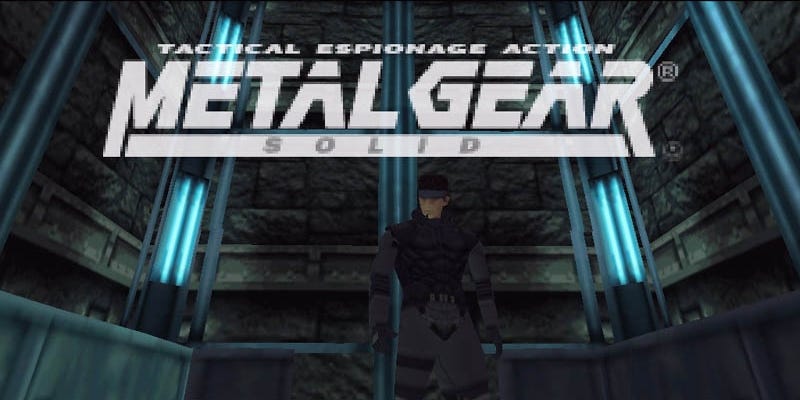
So have I changed or has Hideo Kojima changed? Truthfully, the answer is both. After I wrapped up my time with MGSV, I was genuinely excited for whatever the man would do next. When the first teaser trailer for Death Stranding dropped in 2016, like many I was confused, intrigued, and very much hyped. I had no idea what this game would turn out as, but I regularly followed updates around its development. Yet throughout that time, my own life went through many important milestones.
I moved to Japan for the first time in 2017 for an internship and university study abroad program. In 2018, I moved back to the United States to finish my fourth year at the University of Pittsburgh. In September 2019, two months before Death Stranding was set to release, I once again returned to Japan to begin grad school. Long-time readers of Foreign Perspectives will know the rest, but my father passed away, I finished a master’s, I got married, and I’m currently in the late stages of my doctorate.
I bought Death Stranding at launch, but that coincided with the start of everything I’ve experienced over the last six years. Something else always seemed to come up and my attention was held by other video games. The biggest one for me was Shenmue III, the long-awaited third entry to Yu Suzuki’s epic saga that most believed would never come out. Death Stranding happened to come out at roughly the same period in 2019, but I was always going to prioritize Ryo Hazuki’s quest to avenge his father over anything else. The game had considerable shortcomings and Shenmue IV is looking very unlikely, but that’s a topic for another day.
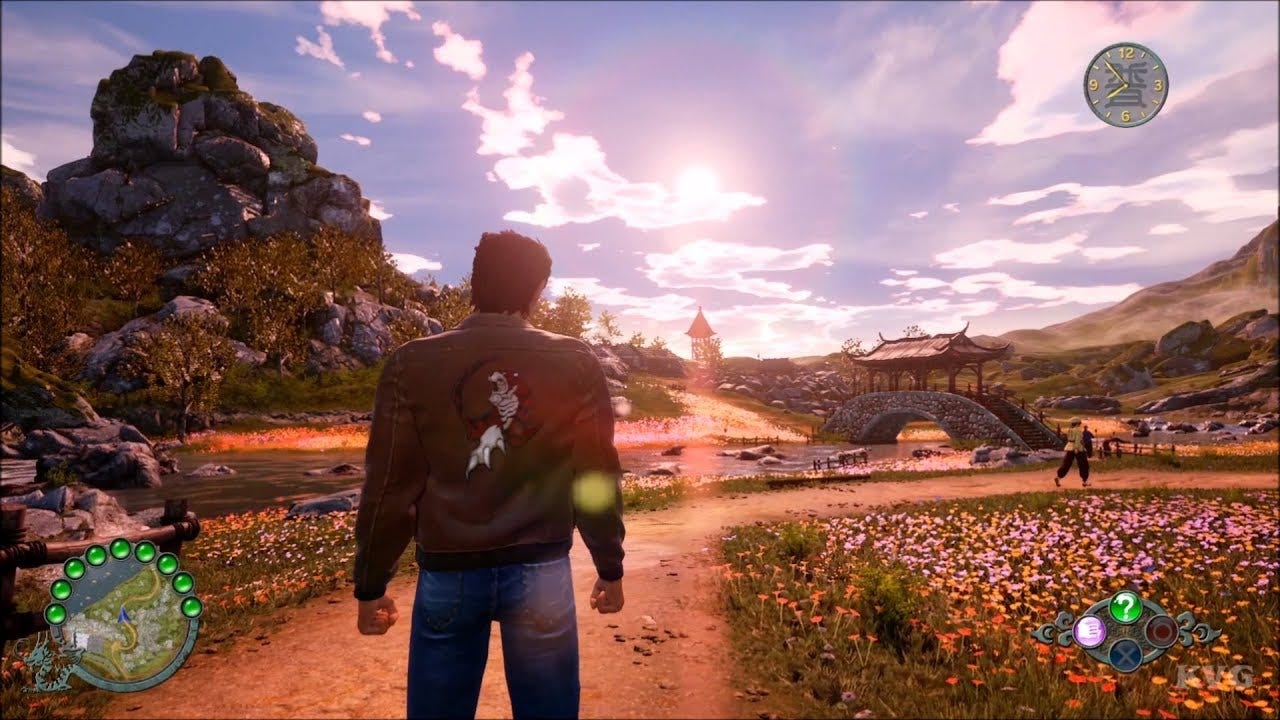
Even when Death Stranding was re-released on PlayStation 5 in 2021 via its “director’s cut,” I still couldn’t get into the game. I once again tried and failed to make much progress beyond a few hours. I was baffled. What didn’t I like? It wasn’t necessarily the slow-paced package delivery gameplay that was bothering me. I generally like methodical games, as evidenced by my passion for Shenmue and other adventure titles. Even now I’m confident that if I gave Death Stranding a few more hours, I’d probably come around to its gameplay and have a better time than before. But a Hideo Kojima game without a compelling story is like going from a robust sandwich to one with much of the meat removed. Edible, but not fully satisfying. It was around this time that I finally realized something shocking — I had fallen out of love with Hideo Kojima.
Yes, the same gamer who has replayed the Metal Gear series countless times, wrote a novelization of the MSX2 games in high school, has spent hundreds on rare Snatcher memorabilia, and was even part of the fan translation group which brought Policenauts to English-speaking audiences is no longer excited by a new Kojima game. I’m like a Catholic who once regularly attended Mass or a Jew observing kosher suddenly becoming a lapsed believer, only in this case I’m an atheist that has become a lapsed Hideo Kojima fan. So what happened? Well for starters, Death Stranding is not the sole cause, but the culmination of how much his output has moved outside of my personal interests.
Kojima’s best years to me span from the mid-1980s when he began his career at Konami to roughly 2004 with the release of Metal Gear Solid 3: Snake Eater. Between all the Metal Gear games, he either directed, wrote, designed, or produced diverse titles from the cyberpunk adventure Snatcher to the anime-inspired robot action game Zone of the Enders. Whether it was the bait-and-switch routine with Metal Gear Solid 2: Sons of Liberty’s protagonist or Boktai requiring the use of a special cartridge to literally take advantage of outdoor solar power, Kojima was always pushing the envelop in what video games could do. Some never liked his style to begin with, but few could call him boring.
What I’m about to say may be an unpopular opinion, but I truly believe that Kojima always worked best when he had others around him to reign in his excesses. Back when the original PC-88 version of Snatcher was in development, the man seriously intended to coat the floppy disk in special paint that would smell like blood when activated by the heat of the computer to mimic the feel of the game’s crime scenes. When conceptualizing Metal Gear Solid 3, he at one point wanted the Japanese cast to phonetically record all their lines in Russian to reflect the Soviet setting, but that was obviously not going to happen. Some of his ideas are great, but others rightfully were left on the cutting room floor.
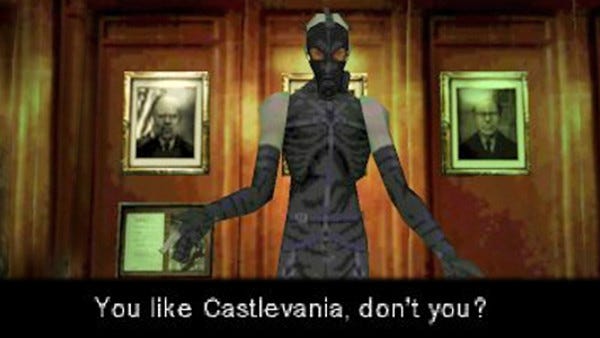
Like George Lucas or Francis Ford Coppola with too many resources at their disposal, Kojima needs other writers, designers, or even company executives to tell him when to dial it down. Even the great Stanley Kubrick who was notorious for his perfectionism and exacting demands worked with dozens of other screenwriters for his stories or relied on the advice of others when he wasn’t sure about something. To make another analogy, I consider Kojima during his time at Konami essentially the lead vocalist of a band. The guitar, bass, and drums are just as important as what immediately catches the listener’s ear. Collaborations of course don’t always lead to success, but I personally subscribe to the belief that Kojima’s stories became less focused after Tomokazu Fukushima stopped being credited as co-writer on his scripts.
All bands eventually break up, but it was a long time coming between Kojima and Konami. Metal Gear Solid 4: Guns of the Patriots always felt like a reluctant chronological conclusion to the Metal Gear series since the man never wanted to make it in the first place. He only took on the project as director after immense fan pressure and while it certainly has its moments, both the gameplay and story pale in comparison to the preceding trilogy. Metal Gear Solid: Peace Walker was a considerable improvement due to its smaller and more intimate scale, something that I wish Kojima would explore more. Metal Gear Solid V: The Phantom Pain, however, went in the opposite direction by going bigger than ever before. This is reflected with its stellar open-world gameplay, but the bare bones story which ended in a whimper was likely due to Kojima’s clear fatigue with the franchise.
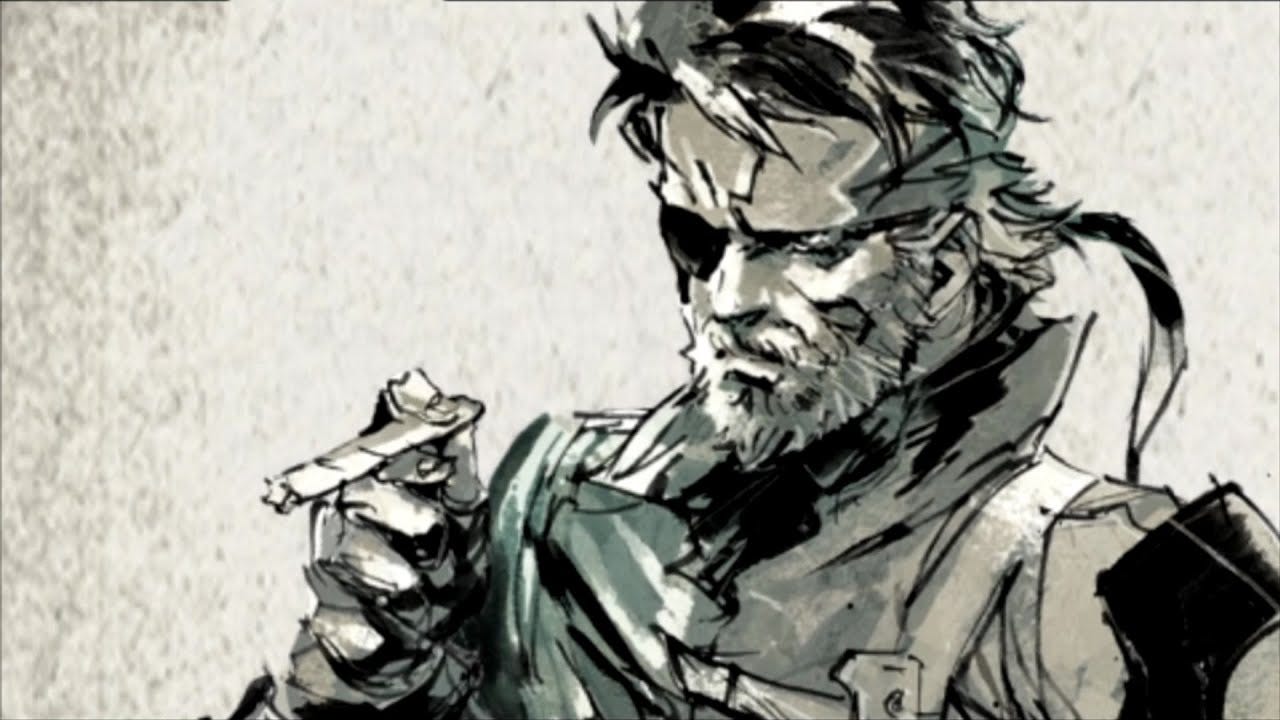
Inevitably, Kojima was always going to move on and form his own studio to make the games he truly wanted without the demands of gray suit executives. It was clear from all the drama around Metal Gear Solid V’s development that his time at Konami had run its course. I suspect that the game was getting too ambitious and expensive, but NDAs prevent us from knowing the full truth of what happened. Either way, I don’t blame Kojima for wanting to leave if he felt creatively constrained. With that said, Metal Gear will forever be tied to him as his greatest contribution to the world. Do most people really prefer Sting’s solo work to what he did with The Police? “Russians” is a good song, but his legacy is always going to be “Every Breath You Take” and “Message in a Bottle.”
I admit that this is entirely a personal problem, but what Kojima does these days simply doesn’t interest me. It’s not like I want him to go back to Metal Gear either. I’d very much like to see him do another adventure game like Policenauts or an RPG like Boktai, though I know it’s probably never going to happen. Kojima instead seems more content to pal around with Hollywood celebrities and have them feature in his games. As a well-known cinephile, I’m sure this was always his dream short of making a movie himself. Again, good for him and I’m happy that he’s living the life. After nearly 40 years in the video game industry, the man deserves to rest on his laurels with the level of fame he has reached. It’s just that the games he’s making now don’t seem to have the magic of what came before.
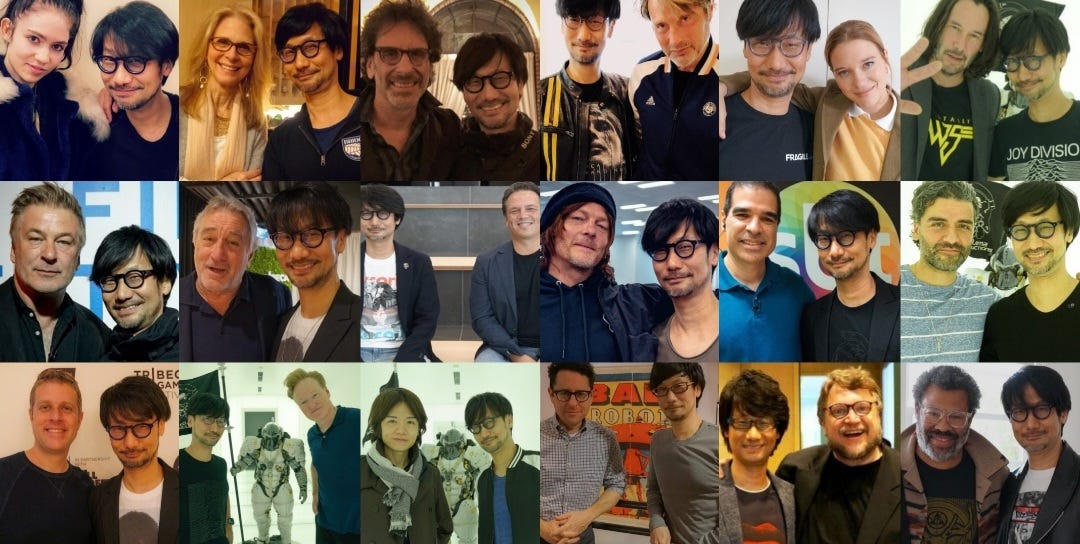
I’m not sure what to make of OD, an upcoming horror title announced for Xbox nearly two years ago that’s supposed to use cloud technology. Given my strong advocacy for media that actually lasts, this alone raises several red flags apart from its pretentious teaser trailer that can barely be called a preview. Physint is set to be his return to the stealth game genre, but it’s literally years away and I hope it’ll be more than just a callback to Metal Gear. Kojima’s focus for the time being is OD and the upcoming film adaptation of Death Stranding, which doesn’t exactly inspire much enthusiasm within me.
It gives me no pleasure to write such a pessimistic column about an artist whose work I was once so enamored with. If there’s a lesson to be learned in all of this though, it’s that neither creators nor consumers stay in the same place forever. Tastes and interests inevitably change over time. Those on the producing side especially will move on to greener pastures if that’s where their inspiration lies. I hope that one day I’ll be able to appreciate Death Stranding more and relight my passion for Hideo Kojima’s work, but it’s also perfectly fine if that never happens. I’m content with the years of enjoyment I’ve gotten out of his other games, and I only wish the man himself continued success producing the art he sees fit.

Foreign Perspectives is a reader-supported Substack. If you like my work and have come this far, consider opting for a paid subscription so I can continue writing in-depth articles such as these on a regular basis. Your support is greatly appreciated!




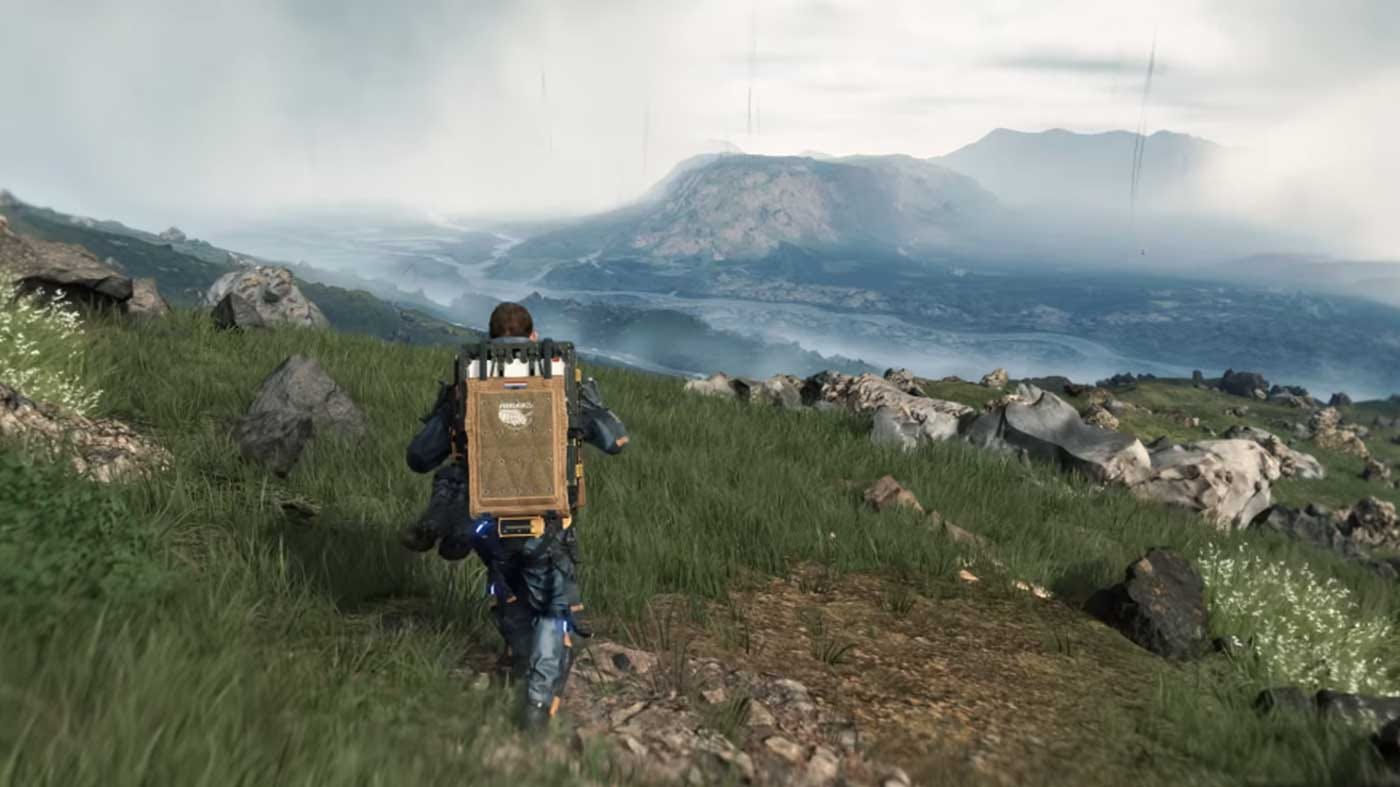
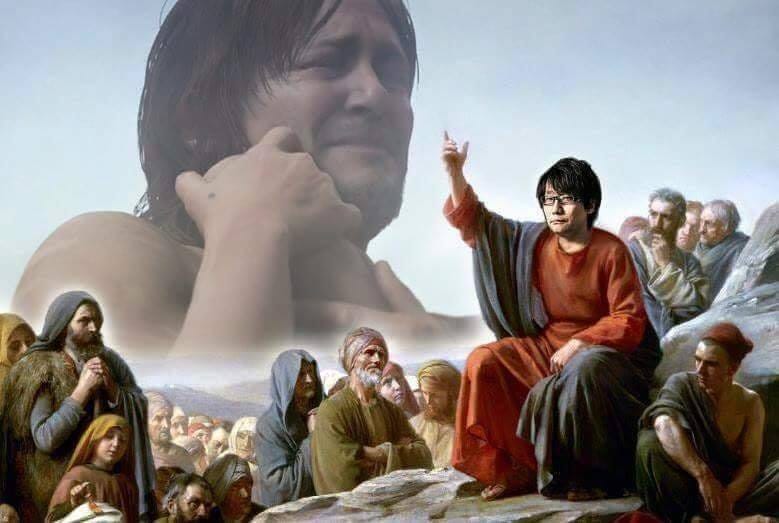
I've only ever played the MGS titles and Death Stranding 1, so I can't say I'm a Kojima megafan, but I think interestingly both Shenmue and DS are acquired tastes in their own right. I don't have a PS5, so I'll be having to wait for the inevitable PC and/or Xbox release of DS2.
I am curious, aside from the story and its sluggish buildup, was there anything else about DS that didn't grab you such as the online gimmick, the "walking simulator" gameplay, etc?